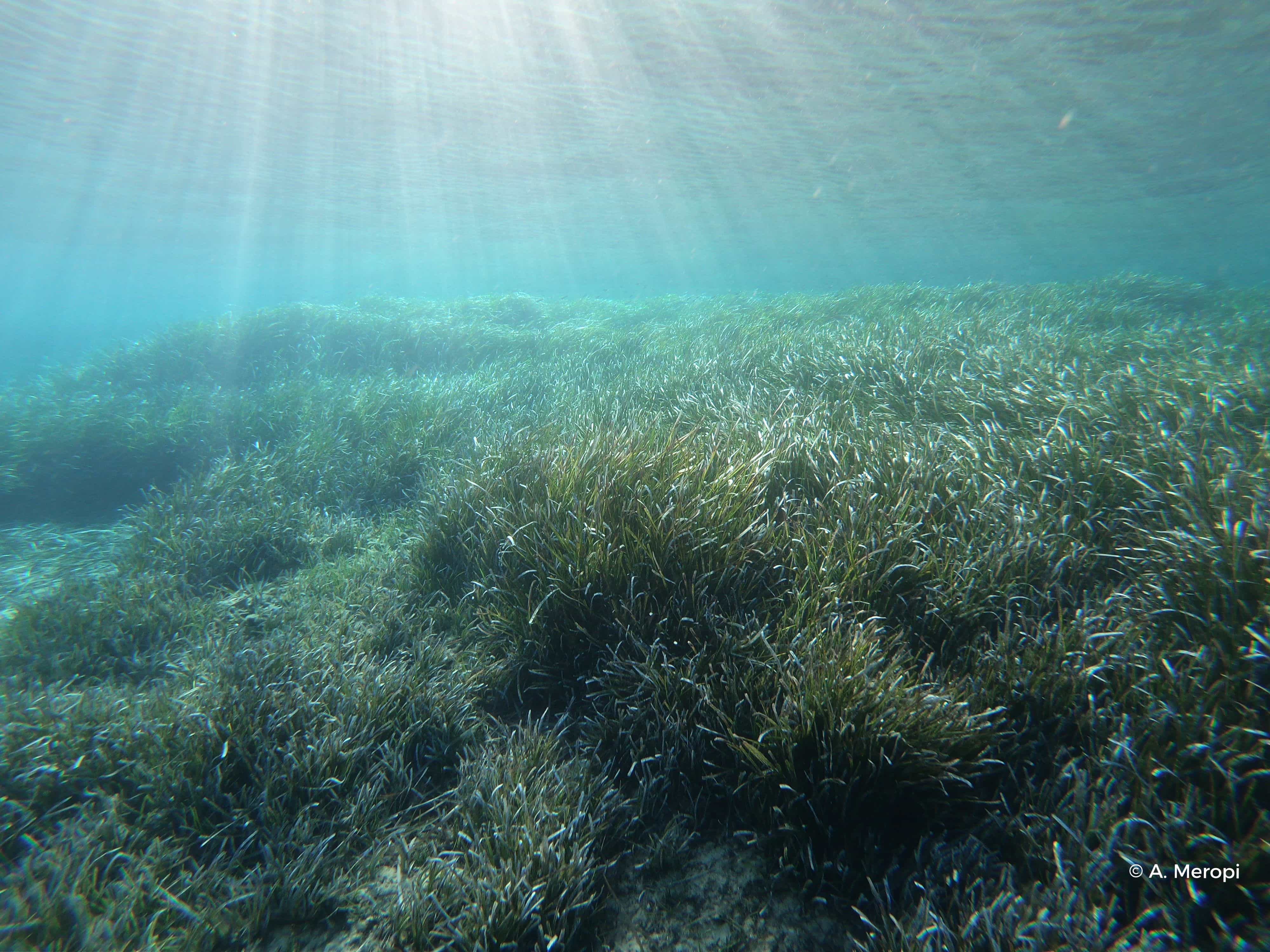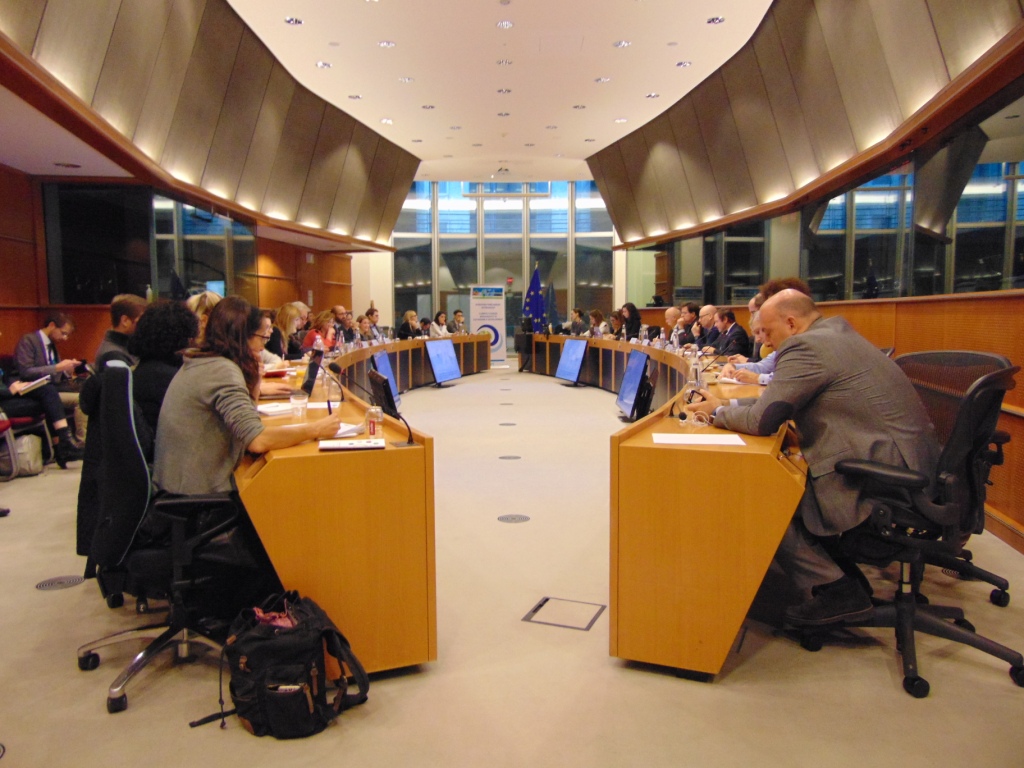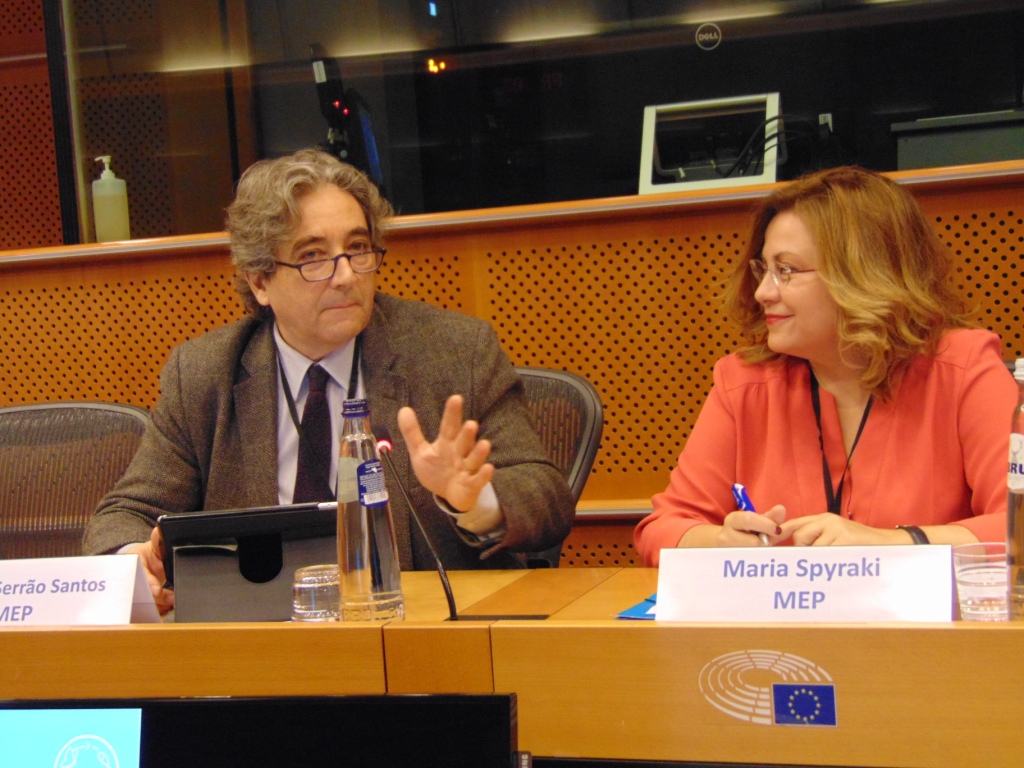
- This event has passed.
Blue Carbon in EU Climate Policy
November 27, 2018 @ 09:00 - 10:30

Ricardo Serrão Santos MEP
Chair of the “Biodiversity and Ecosystem Services” Working Group
of the European Parliament Intergroup on
“Climate Change, Biodiversity, and Sustainable Development”
and
Maria Spyraki MEP
Cordially invite you to the event
Blue Carbon in EU Climate Policy
Tuesday 27 November 2018
09:00-10:30
European Parliament, Room ASP 3H1
With the milestone of the 2015 Paris Agreement to the United Nations Framework Convention on Climate Change (UNFCCC) behind us countries now need to focus on its implementation and overall commitments to reduce emissions and enhance adaptation programs.
Blue Carbon, the carbon absorbed and stored by marine and coastal ecosystems such as tidal marshes and seagrasses from European Seas, represents a large natural carbon sink. Coastal and marine ecosystems and their important role as carbon sinks are, re-emphasized in the Paris Agreement, highlighting the need to optimize management measures to conserve and improve the conservation status of these habitats that act as sinks and reservoirs of greenhouse gases, where adequate. Their sink capacity can contribute to achieving countries NDCs in terms of mitigation, as well as support relevant adaptation measures. Some coastal management projects also show potential for selling carbon credits via the voluntary carbon market, as well as attracting other innovative financing mechanisms. They also represent a link between two of the key environmental challenges of our time: climate change and biodiversity loss.
This event aims to provide a forum for discussing with EU Member States and stakeholders on the role of these coastal and marine ecosystems for climate mitigation and adaptation. The results from the LIFE project BlueNatura will be presented, and provide a base for the discussion. Experts will present an overview on the knowledge of Blue carbon ecosystems in Europe and showcase current initiatives for avoiding and reduction CO2 emissions, especially in the Atlantic and Mediterranean regions, as well as experiences of countries that have already incorporated blue carbon into National Green House gas Inventories. A final roundtable discussion will examine priorities, potential gaps and opportunities to support the integration of Blue carbon into European policies.
With the support of:






